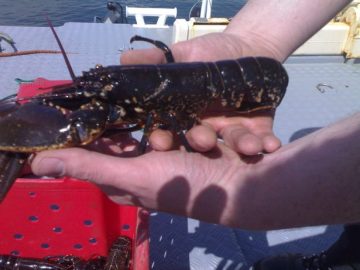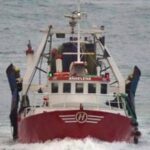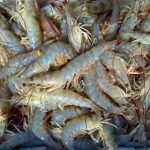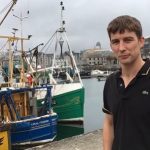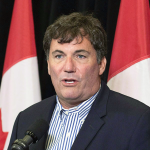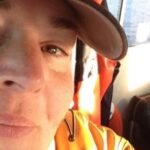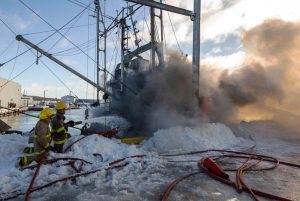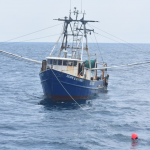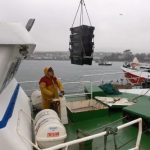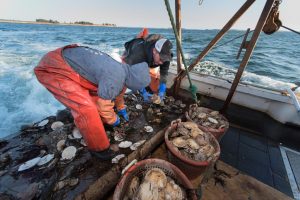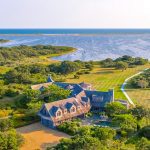Daily Archives: December 19, 2017
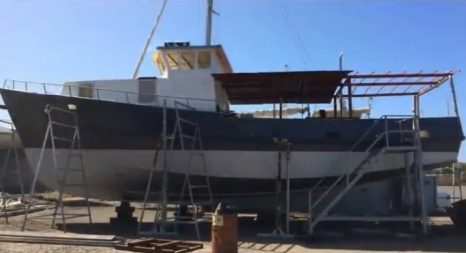
Imaginative Aussie Couple Documents Fish Boat Conversion on Video
Brupeg started life in 1974 as an Australian prawn fishing trawler. In 2013 she sunk in the Burnett River from flood waters left over from a cyclone. Damien and Jess Ashdown tell the story of the boat’s conversion, which includes using “vege” fuel. Then we’ll reprise some of their videos”. We brought Brupeg in 2014 after she had sunk in a flood. It was love at first sight. She was a stripped out steel hull about to be cut up for recycling. We had a pretty specific set of requirements and it took us four years to find the right boat. The places we want to go are often hostile and demanding and need a strong hull click here to read, and watch the video’s 19:40

Canada’s Cooke Inc. acquires Omega Protein Corporation
Cooke Inc. (“Cooke”), a New Brunswick company and parent of Cooke Aquaculture Inc., today announced the completion of its acquisition of Omega Protein Corporation (NYSE: OME) (“Omega Protein”), a nutritional product company and a leading integrated provider of specialty oils and specialty protein products. Under terms of the transaction, Cooke has acquired all outstanding shares of Omega Protein for $22 per share in cash, or a total value of approximately $500 million USD. click here to read the story 17:05
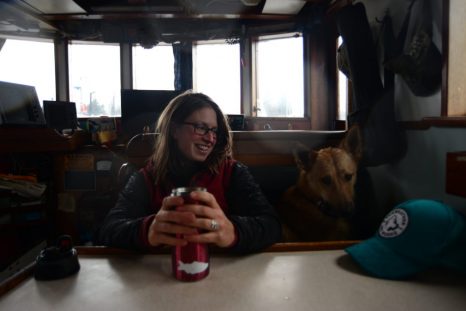
Rural Alaska losing access to fisheries, report says
The increasing costs to get into Alaska’s fisheries are making it difficult for new fishermen to break into the business — especially in rural, coastal communities. That’s according to a recent report from University of Alaska Fairbanks and Sea Grant scientists. They worry that in an industry once defined by hard work, a fishermen’s success now mainly depends on access to money. The year is 1971. America was losing the Vietnam War war. The Beatles broke up. (Bore enlisted!) The personal computer wouldn’t exist for another decade. And Jim Moore moved to Southeast Alaska to go fishing. He got in just in time. click here to read the story 15:32
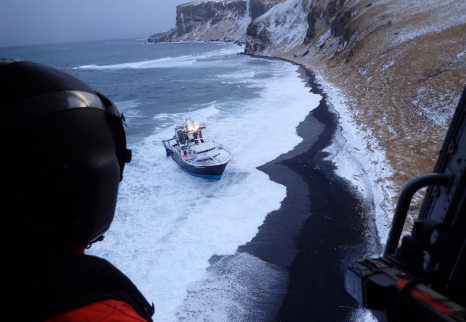
The 27 most captivating photos of the US Coast Guard in 2017
From Guam in the Pacific to Puerto Rico in the Atlantic, from north of the Arctic Circle to south of the equator, the US Coast Guard patrols and protects the world’s largest exclusive economic zone, covering nine time zones. It is one of the five military branches, a member of intelligence community, a first-responder and humanitarian service, and a law-enforcement and regulatory agency that defends more than 100,000 miles of US coastline and inland waterways. Photos from a year in the life of the Coast Guard — where no day is ordinary click here to see the photos 15:06
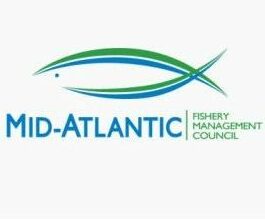
Mid-Atlantic Council Discontinues Development of Squid Buffer Framework
The Mid-Atlantic Fishery Management Council voted last week to discontinue development of a framework action that would have considered establishing a squid fishery buffer zone in waters south of Martha’s Vineyard and Nantucket. This decision will allow the effects of the recently-approved Squid Amendment to be realized prior to any additional action. The Council included the Squid Buffer Framework in its list of possible actions for 2017 in response to public concern regarding longfin squid fishing effort during Trimester 2 (May-August) in an area south of Martha’s Vineyard and Nantucket. click here to read the press release 13:28
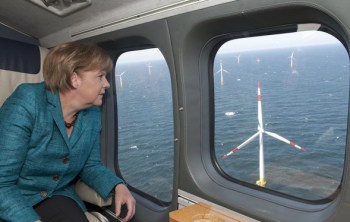
German Energy Policy Lost: ‘Energiewende Has Failed,’ Says Leading Enviro
In an opinion piece at the Mittel Bayerische daily, Harry Neumann, National Chairman of the environmental group Naturschutzinitiative e.V. declares Germany’s Energiewende (transition to renewable energies) a failure and writes: “The wind power industry and nature protection cannot be reconciled.”,,, Neumann also notes that despite having installed close to 30,000 wind turbines, Germany’s “CO2 emissions are not dropping, but rather are rising again.” He adds, During the expansion of renewable energies, they failed from the start to set impact limits too protect nature, species, forests, and landscapes.” click here to read the story 12:43
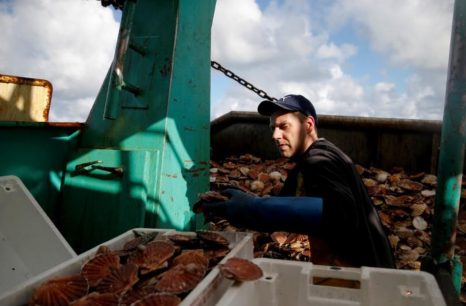
‘White gold’ on deck of French trawler signals bumper haul of scallops
On the trawler Thierisa the mood was festive. It was the first day of the scallop season and the deck already groaned with the “white gold” of a bumper season in the waters off northern France. After two and a half hours on turbulent waters, they arrived at the fishing grounds but had to wait until noon and the start of the scallop season at Bay of the Seine. Police helicopters hovered to make sure no nets were lowered early. Northern France’s season for scallop, or “white gold”, runs from October to mid-May but in Bay of the Seine it starts in November. click here to read the story 12:17
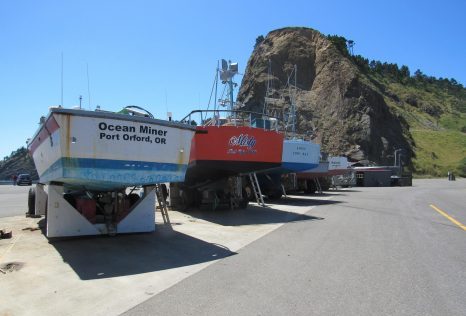
With The Timber Economy Gone, Port Orford Looks To The Sea
Recent decades have not been kind to rural Oregon. As natural resources come under increased pressure — and the economy becomes more globalized — small, resource-based communities have been hit hard. Port Orford, on Oregon’s south coast, is no exception. But now, some people in Port Orford are trying innovative approaches to adapting traditional livelihoods to the new reality so their town can survive – and even thrive – in the 21st Century. click here to read the story 11:30
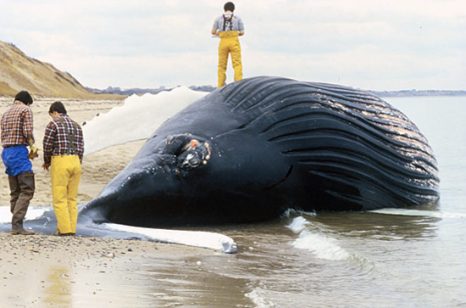
On This Day: Dec. 19, 1987, An “unprecedented mortality” – Tainted Fish Found in Dead Whales on Cape Cod
Contaminated mackerel were found in the stomachs of nine whales that died recently along Cape Cod beaches, a finding that may help explain other mysterious marine fatalities, researchers said today. ”We have what appears to be an unprecedented mortality in marine mammals,” Joseph R. Geraci, a marine pathologist, said at the New England Aquarium here. ”Perhaps not unprecedented in that it occurred, but unprecedented in that we have discovered for the first time a biological toxin that is directly reponsible for the deaths.” click here to read the story 08:49
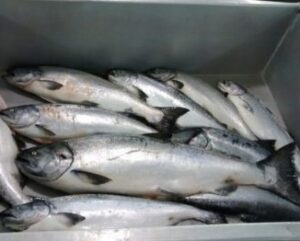
Southeast Alaska winter troll fishery to remain open
Commercial trolling for king salmon in Southeast Alaska will stay open this winter beyond December. The Alaska Department of Fish and Game announced the winter season will be open until further notice and could stay open until mid-March. That depends on any measures the Board of Fish adopts in January to protect wild Chinook returning to Southeast Alaska rivers. Historically low returns in recent years have prompted some conservation measures, including a region-wide shut down for king fishing in the summer of 2017. click here to read the story 08:13






